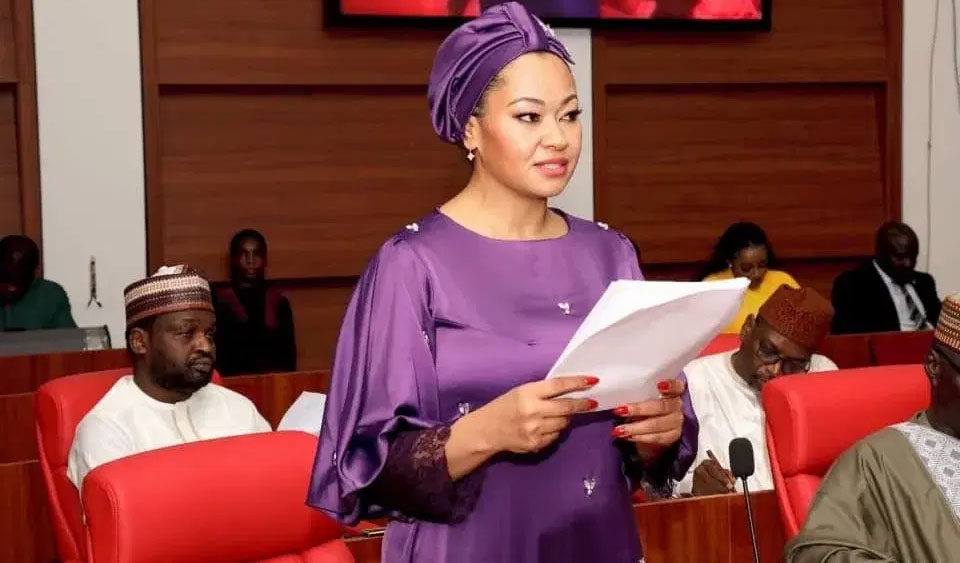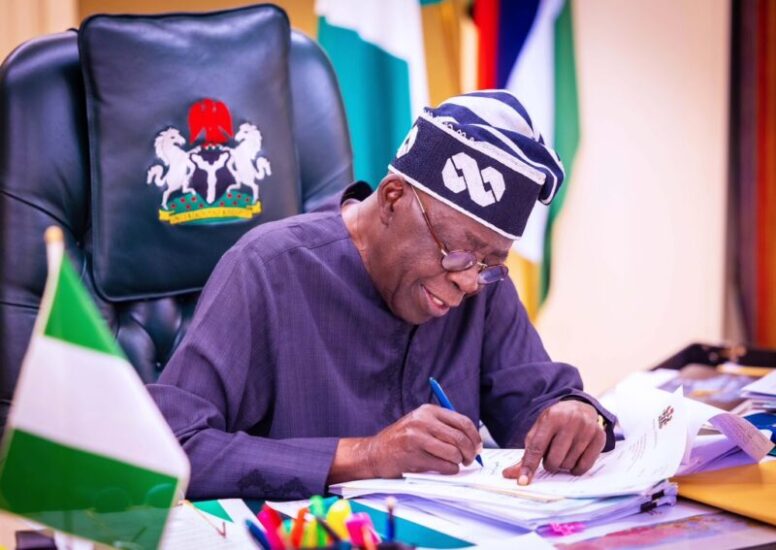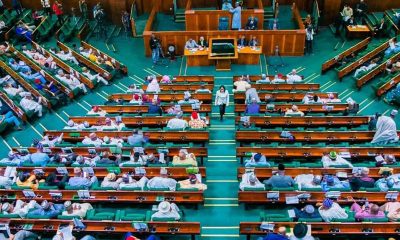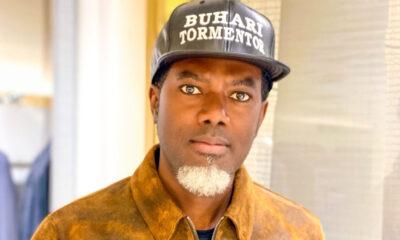News
NNPC projects $1tn loss in global oil production by December

The Nigerian National Petroleum Corporation has estimated global losses from exploration and production activities due to slowing demand for crude oil amid the COVID-19 pandemic will hit about $1 trillion by the end of 2020.
Group Managing Director of the corporation, Mallam Mele Kyari, who stated this on Tuesday at the Nigerian Association of Petroleum Explorationists (NAPE) 2020 Conference, also reiterated the plan of the NNPC to reduce production cost per barrel to $10 by 2021.
The theme of the conference held in Lagos was “Accelerating Growth in Nigeria’s Hydrocarbon Reserves: Emerging Concepts, Challenges and Opportunities.”
He said the NNPC had slashed its cost per unit to between 20 per cent and 30 per cent and would reach the projected target next year.
He said, “We are in challenging times. What COVID-19 did to the oil industry is monumental. It has done a lot of collateral damage to the rest of the industry, entertainment and everything you can think off.
“Of course, the collateral cost to the industry we expect is about $1tn of loss for E&P across the globe.
“There’s an extreme decline in demand for oil and of course other losses through the year which is fatal for the business.
“But businesses must adjust and do things differently. We have pulled down cost and increased revenue and we are focusing more on reducing cost and optimising costs where we are not able to cut costs.
“We are investing in gas because we have seen the resilience of gas and that has taught us that gas will be the future of transition fuel and a great player in the future scenario. We are a gas country with over 600tcf with proven reserves of 203 trillion CF. We have done very little on that. The PIB will be the solution to this.”
Kyari said the only way to survive the difficult situation was to cut or optimise production costs and increase revenue.
Vice President, Prof. Yemi Osinbajo, who also attended the event, said the Federal Government was targeting the growth of the country’s crude oil reserves, currently at about 36 billion barrels to 40 billion and achieve a daily production of three million barrels.
Kyari, in his virtual presentation from Abuja, explained that with over 203 trillion cubic feet of gas, the Petroleum Industry Bill (PIB) when passed into law, would unlock the huge potential in the country.
According to him, without a clear fiscal environment and incentives in place, no one will invest in the sector, adding that by the time the PIB is ready next year, there will be renewed vigour in the industry, especially on the gas side.
He stated that despite the conversations surrounding the extinction of hydrocarbons, crude oil will continue to be relevant in the next 20 to 40 years.
He added that only very efficient companies producing at cheapest cost and getting to the market early would survive.
Kyari expressed delight at the discovery of oil in the frontier basin, particularly in the Benue trough.
He said it would significantly change the dynamics of production in the country, including the expansion of the country’s reserves.
He said, “Times are tough but the opportunities are all there. As a company, we have a target in the upstream and we know that $10 is possible in the industry. A lot is going on in terms of sharing resources, reducing contracting circle etc. We have seen a cost reduction of 20 to 30 per cent and overall at the end of 2021, we will see the $10 unit production cost.
“There are areas where it’s being done for less than $10 and unless we do this, we will not be competitive. The advantage we have is the quality of oil we have and we are one of the most extreme area in terms of distribution, so we have to pull the cost down, otherwise, we will produce oil and not find anyone to buy because you cannot cover the cost ultimately.”
Osinbajo, represented by the Minister of State, Petroleum, Chief Timipre Sylva, explained that though renewable energy remained the future of energy transition, hydrocarbons would remain the dominant source of energy in the immediate future.
He expressed optimism that a single-digit unit cost of production was achievable, provided the entire industry could work together to achieve the set target.
He said, “There’s no gainsaying that the growth of some countries depends on energy availability and utilisation, especially on crude oil and increasingly on natural gas.
“Renewable energy is becoming a cheaper form of energy and response to climate and reduced dependence on hydrocarbons over the next century seems to be inevitable. That notwithstanding, technology and discussions to date suggest that hydrocarbons will remain the dominant source of energy in the immediate future.
“The increased level of uncertainty in oil and gas demand and the emerging technologies on alternative energy have become important elements in making decisions on optimal exploitation of petroleum resources.
“This is more critical now that abundance of hydrocarbons is being discovered in the most unconventional places of the world. I suggest that our discussion should include but not limited to provision of secure energy supplies.”
The vice president stated that the OPEC production curtailments had resulted in lower revenue for the government, adding that it is now imperative for Nigeria to achieve a single-digit cost of production.
“Another key mandate is the growth of the country’s reserves to 40 billion barrels of crude oil as well as the production capacity of three million barrels of crude oil per day. We are fully committed to this mandate, notwithstanding the curtailment.
“We have the assurance that the curtailment will soon be over as the world economy improves. To grow our reserves, we have proposed fiscal incentives that will attract investments in the PIB,” he stated.
News
Nigerian woman declared dead appears in UK court to reclaim her £350,000 home

Nigerian woman declared dead appears in UK court to reclaim her £350,000 home
A 55-year-old Nigerian woman, June Ashimola, who was falsely declared dead, has appeared via video link from Nigeria before the UK High Court to prevent a convicted fraudster from seizing her £350,000 home in Woolwich, southeast London.
Ashimola was wrongly declared dead in February 2019, sparking a long legal battle over her estate.
However, she has now presented herself before Deputy Master John Linwood, asserting that she is alive and a victim of fraud.
According to DailyMail on Wednesday, the court heard that following her wrongful declaration of death, power of attorney over her estate, which consisted primarily of a house, was granted to Ms. Ruth Samuel, acting on behalf of Bakare Lasisi, who falsely claimed to have married Ashimola in 1993.
However, the judge ruled that the supposed marriage was a fabrication and that Lasisi did not exist.
According to court records, Ashimola left the UK for Nigeria in 2018 and had not returned since.
By October 2022, power of attorney had been awarded to Samuel on behalf of the fictitious Lasisi, who laid claim to Ashimola’s estate.
The judge ultimately found that Tony Ashikodi, a convicted fraudster who served three years in prison in 1996 for obtaining property by deception, had orchestrated the elaborate scheme to seize her home.
READ ALSO:
- Ex-Twitter CEO Jack Dorsey locked out of X account
- Obasanjo lambasts Tinubu on high cost of VP new residence, Lagos-Calabar highway
- ‘Akpabio can’t be forced to honour IPU invitation over Natasha’s accusations’
“This is an unusual probate claim in that the deceased says she is very much alive,” Deputy Master Linwood remarked, describing the case as a web of fraud, forgery, impersonation, and intimidation.
“The root of this claim is a long running battle or campaign waged by a Mr Tony Ashikodi for control and/or ownership of the property.
‘Ms Ashimola left the UK for Nigeria in about October 2018 and has not returned since. This claim involves wide-ranging allegations of fraud, forgery, impersonation and intimidation,” Linwood added.
Despite visa challenges preventing her from appearing in person, Ashimola’s identity was verified through passport photographs, leading the judge to dismiss the claims against her estate.
After reviewing the evidence, Deputy Master Linwood ruled, “’I find Ms Ashimola is alive and that the death certificate was forged and/or fraudulently obtained or produced or concocted.
“Her alleged death was part of Mr Tony Ashikodi’s attempts to wrest control of the property from her.
“The person who appeared before me and identified herself as Ms Ashimola was physically like her photographs in each passport.
READ ALSO:
- Natasha: Senate writes IPU on her suspension
- Nigerian man gets life jail in Italy for rape, murder
- Heavens won’t fall if Gov Fubara is impeached, says Wike
“I find that Ms Ashimola was not married to Mr Lasisi and that the marriage certificate is a concocted or fraudulent document for these reasons.
“I do not accept Mr Lasisi exists or if he does is aware of his identity being used. I do not accept that emails supposedly from him were actually from him.”
He further accused Ashikodi of attempting to mislead the court and found that both Ashikodi and Samuel were either directly involved in producing the fraudulent documents or knowingly relied on them.
He added, “I find that the probate power of attorney submitted supposedly by Mr Lasisi and Ms Samuel was a fraudulently produced or concocted document.
“The death certificate was not proven to the necessary standard in that only a copy was produced. The provenance was unknown. There was no evidence before me that it was a genuine document evidencing a real event.
“I find it was forged and/or fraudulently produced or concocted. The persons who relied upon it namely Mr Tony Ashikodi and Ms Samuel were either directly involved in its production or else knew it was false.’”
As a result, the power of attorney was revoked, safeguarding Ashimola’s rightful ownership of her £350,000 property.
The court also heard that legal costs incurred by both parties have exceeded £150,000, an amount that may surpass the property’s equity value.
Nigerian woman declared dead appears in UK court to reclaim her £350,000 home
News
Natasha: Senate writes IPU on her suspension

Natasha: Senate writes IPU on her suspension
The complaint filed by Senator Natasha Akpoti-Uduaghan at the United Nations Inter-Parliamentary Conference in New York has continued to generate reactions from various quarters.
The Kogi Central lawmaker had taken her case to the Inter-Parliamentary Union (IPU), alleging injustice and harassment, including her recent suspension from the Nigerian Senate.
Following her presentation, the IPU assured her that it would take necessary steps to address her grievances but emphasized the need to also hear the other side before making any official pronouncement.
The Nigerian Senate has however replied to Senator Natasha’s complaint to the IPU through a letter written by the Senate Leader, Senator Opeyemi Bamidele.
The letter was read by the Chairperson of the House of Representatives committee on Women Affairs and Social Development, Honorable Kafilat Ogbara, who is attending the event in an official capacity representing Nigeria.
The Senate letter read in part, “Senator Natasha-Akpoti-Uduaghan was suspended for gross misconduct and unruly behaviour and not as a result of allegation of sexual harassment or assault.
READ ALSO:
- Nigerian man gets life jail in Italy for rape, murder
- Heavens won’t fall if Gov Fubara is impeached, says Wike
- Abuja sex workers lose case seeking to legalise prostitution
“The authority of the Senate of the Federal Republic of Nigeria firmly refutes the deliberate misinformation and false narrative being circulated by certain media organisations regarding the sixth months suspension of Senator Natsaha-Akpoti-Uduaghan.
“Let it be unequivocally stated that Uduaghan was suspended solely for her persistent act of misconduct and disregard for the Senate Standing Orders.”
Honourable Ogbara, however, called for a thorough investigation into the allegation by Senator Natasha against the Senator President, Godswill Akpabio.
She maintained that procedures and necessary actions under the Senate rules were observed before Senator Natasha’s suspension.
Last week, the Senate suspended the lawmaker in a move that has continued to generate debates across the country.
She had initially submitted a petition to the Senate accusing Akpabio of sexual harassment. But the lawmakers threw it out before suspending her even after submitting another petition.
Senator Natasha vowed to continue the fight against “injustice”. But in the wake of the suspension, Akpabio denied the accusations and maintained he has never assaulted women.
Her altercation with the Senate president started on February 20, 2025, after her seat was changed during plenary.
That is not the first time both individuals had issues. In July 2024, Akpabio had while trying to correct her for misconduct told her to follow the rules and that the Senate is not a nightclub where anybody can talk anyhow. The Akwa Ibom lawmaker, however, later apologised to her for the remark.
Natasha: Senate writes IPU on her suspension
News
Tinubu set to appoint new ambassadors after 18 months

Tinubu set to appoint new ambassadors after 18 months
President Bola Tinubu is finally taking steps to fill Nigeria’s diplomatic leadership positions after operating without ambassadors for a year and a half.
According to a credible source in the Presidential Villa, the government has completed the screening of potential candidates to head Nigeria’s over 100 diplomatic missions worldwide. A senior official in the Ministry of Foreign Affairs also confirmed that the appointments are expected “very soon.”
This move follows Tinubu’s decision in September 2023 to recall all Nigerian ambassadors shortly after taking office.
“The issue is being resolved,” the source said, indicating that the long diplomatic vacuum may be coming to an end very soon.
“Nigeria’s security services have conducted background checks on potential appointees and have shared their findings with relevant agencies in the presidency and legislature”, according to an intelligence official.
The foreign affairs ministry has previously blamed financial constraints for the delay in naming new diplomats.
Nigeria, Africa’s most populous nation has budgeted N302.4 billion this year to operate its foreign missions.
READ ALSO:
- Bode George reacts to Jandor’s anti-party accusation, says he’ll regret ever walking Lagos streets
- High expectations as petrol price may drop to N800/litre
- PANDEF seeks Tinubu intervention in Rivers crisis
A former Nigerian ambassador who served in Africa and the United States noted that since taking office in May 2023, President Tinubu has focused primarily on addressing Nigeria’s struggling economy, with foreign policy taking a second priority.
The former ambassador, who requested anonymity, said government officials had informed him that several foreign leaders had raised concerns about Nigeria’s lack of ambassadors during discussions with President Tinubu. According to this source, the president has assured these leaders that appointments will be made soon.
Another official who asked to remain anonymous as he was not authorised to speak to the press confirmed that the appointment was imminent.
“Ambassadorial appointments require approval from the National Assembly. So, the list will be submitted to the Senate President, who will then announce it. But it has not been submitted yet. Yes, I can confirm that but it will be submitted shortly.
In April 2024, the government appointed 12 consuls-general and five chargés d’affaires to represent Nigeria in 14 countries, but these interim measures fell short of filling the leadership vacuum in key missions.
Consuls-general and chargés d’affaires can perform routine administrative duties and oversee the operations of an embassy. They, however, lack the diplomatic weight to engage at the highest levels, such as with heads of state or critical international negotiations.
This newspaper learnt that a founder of a tier-one bank, a former Deputy Governor of Lagos State and the Speaker of a House of Assembly in the North were considered for the ambassadorial roles.
Tinubu set to appoint new ambassadors after 18 months
-

 metro2 days ago
metro2 days agoJUST IN: Fubara locked out of Rivers Assembly complex (Video)
-

 Railway2 days ago
Railway2 days agoWe’ll stamp out railway vandalism, says Opeifa, after recovering stolen 91 sleepers, 25 rails
-

 metro2 days ago
metro2 days agoBREAKING: House of Reps orders shutdown of porn websites nationwide
-

 metro2 days ago
metro2 days agoOmokri to el-Rufai: No party defector has ever become Nigeria’s president
-

 metro3 days ago
metro3 days agoAPC council chairmanship aspirant hacked to death in Lagos
-

 Entertainment2 days ago
Entertainment2 days agoI’ve videos of multiple men sleeping with my wife – Ijoba Lande
-

 Entertainment17 hours ago
Entertainment17 hours agoCourt bans viewing of controversial film, ‘Gang of Lagos’
-

 News17 hours ago
News17 hours agoNigerian woman declared dead appears in UK court to reclaim her £350,000 home










You must be logged in to post a comment Login